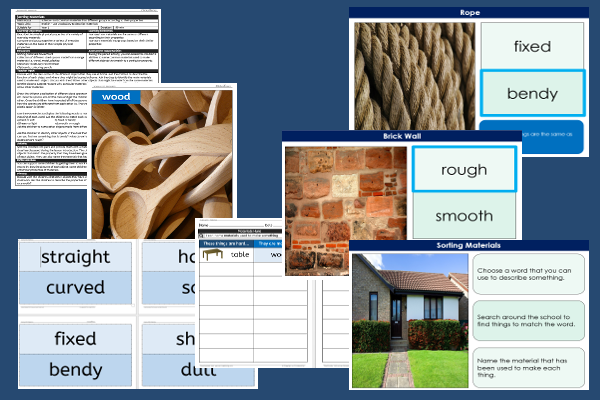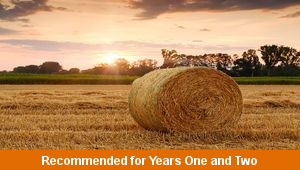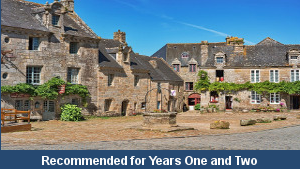Lesson Two – Sorting Materials

This science teaching pack for Key Stage One gets the children to select and sort a selection of common materials used in a family home into different groups according to their matching properties.
The class can name and list a selection of objects that can be found around the school to match different material properties such as hard, smooth and bendy.
Download this teaching pack including a lesson plan, classroom activities and an interactive presentation to select and sort a selection of common materials used in a family home into different groups according to their matching properties
Activities in this teaching pack include display posters to identify and describe a range of common materials used to make household objects, a set of cards to sort objects into matching material groups and a template to select and record materials that have been used to make a range of different household objects.
The interactive presentation gets the children to explore how to sort a selection of common materials into different groups according to their matching properties.
This lesson is part of a science scheme of work to get the children to identify, group and compare a variety of everyday materials used for a range of different functions on the basis of their physical properties. There are teaching activities for shared learning, differentiated worksheets to support independent learning and interactive presentations to introduce concepts and key skills.
-

Harbour Labels
Practise structuring and formatting different word processed documents to describe a range of ships and boats seen in a harbour
-

Islam
Explore and illustrate some of the different stories, beliefs and practices of the Islamic religion including special festivals and sacred texts
-

Farm Prints
Practise and demonstrate different techniques when printing a range of shapes and patterns that can reflect themes and ideas related to farming
-

Towns and Villages
Identify, describe and compare some of the changes to different buildings that have occurred in the school neighbourhood over time
